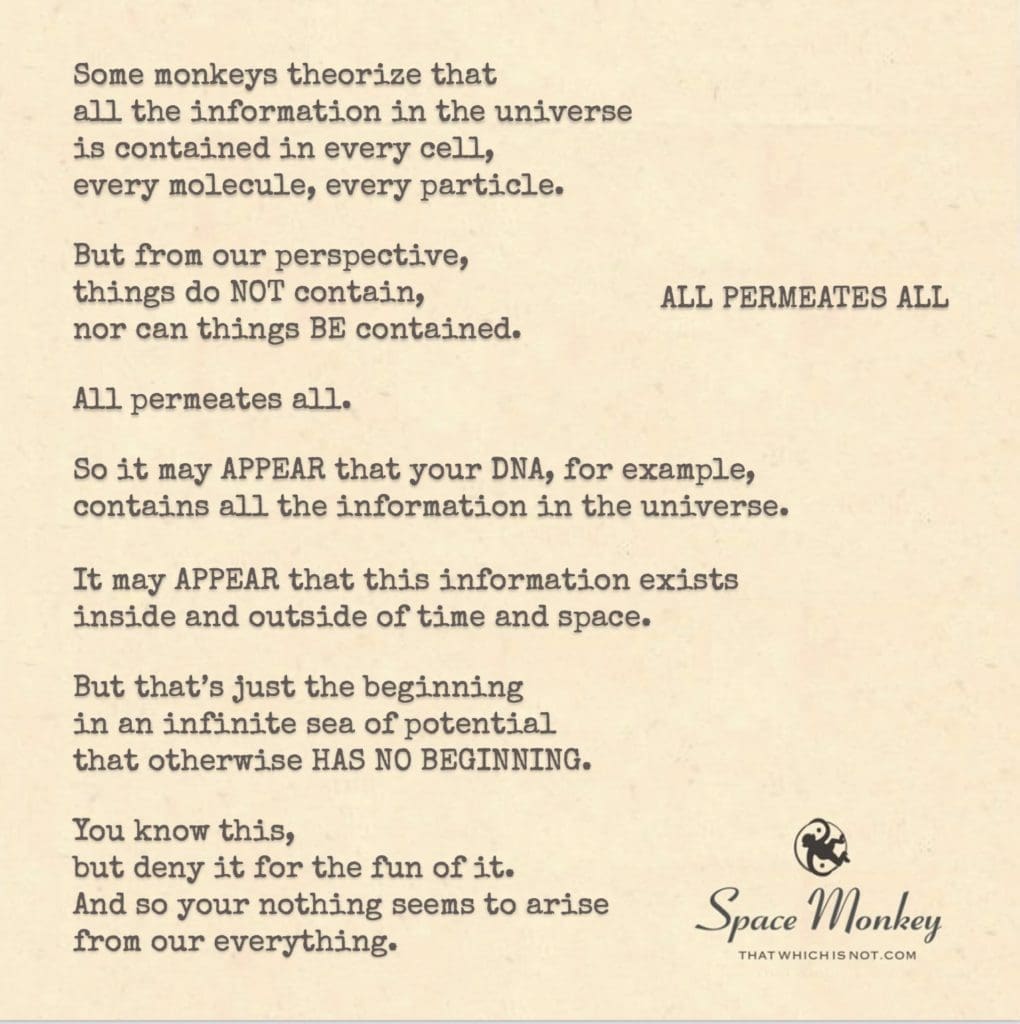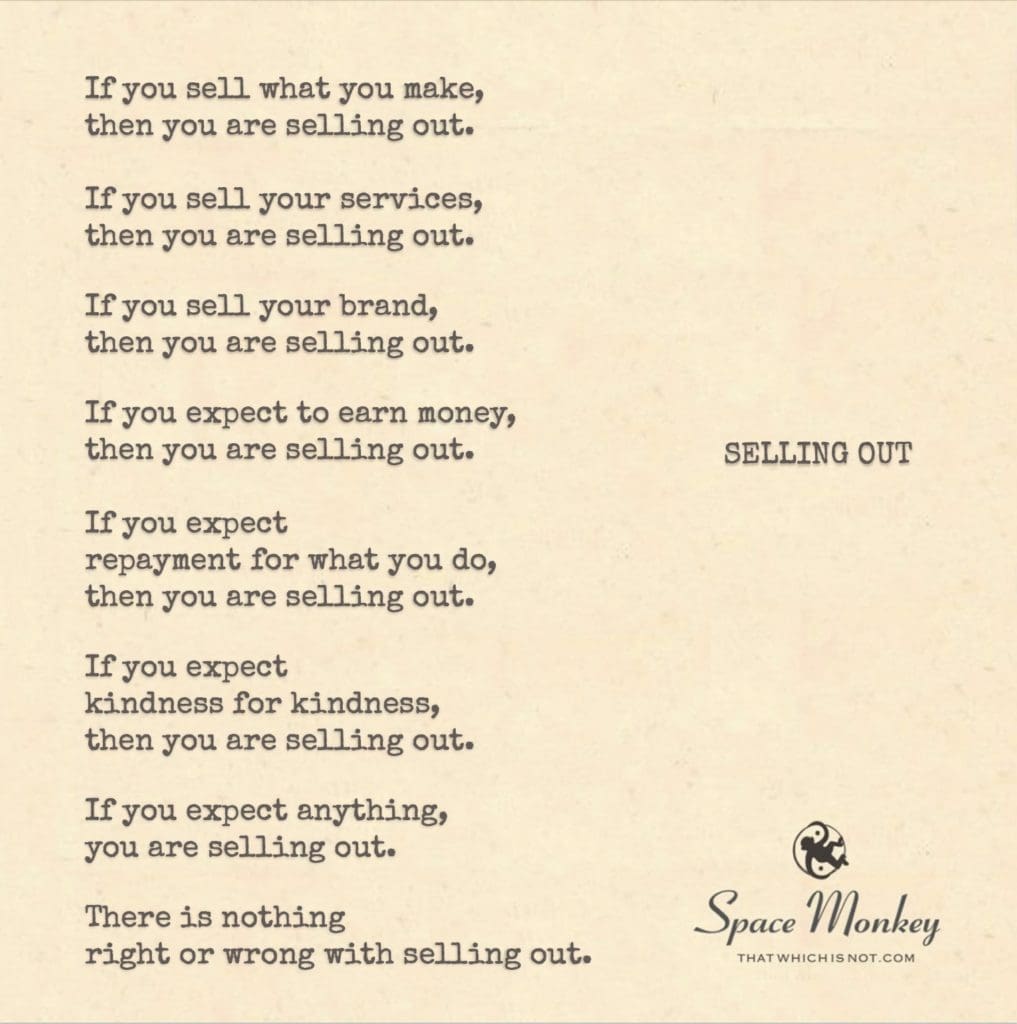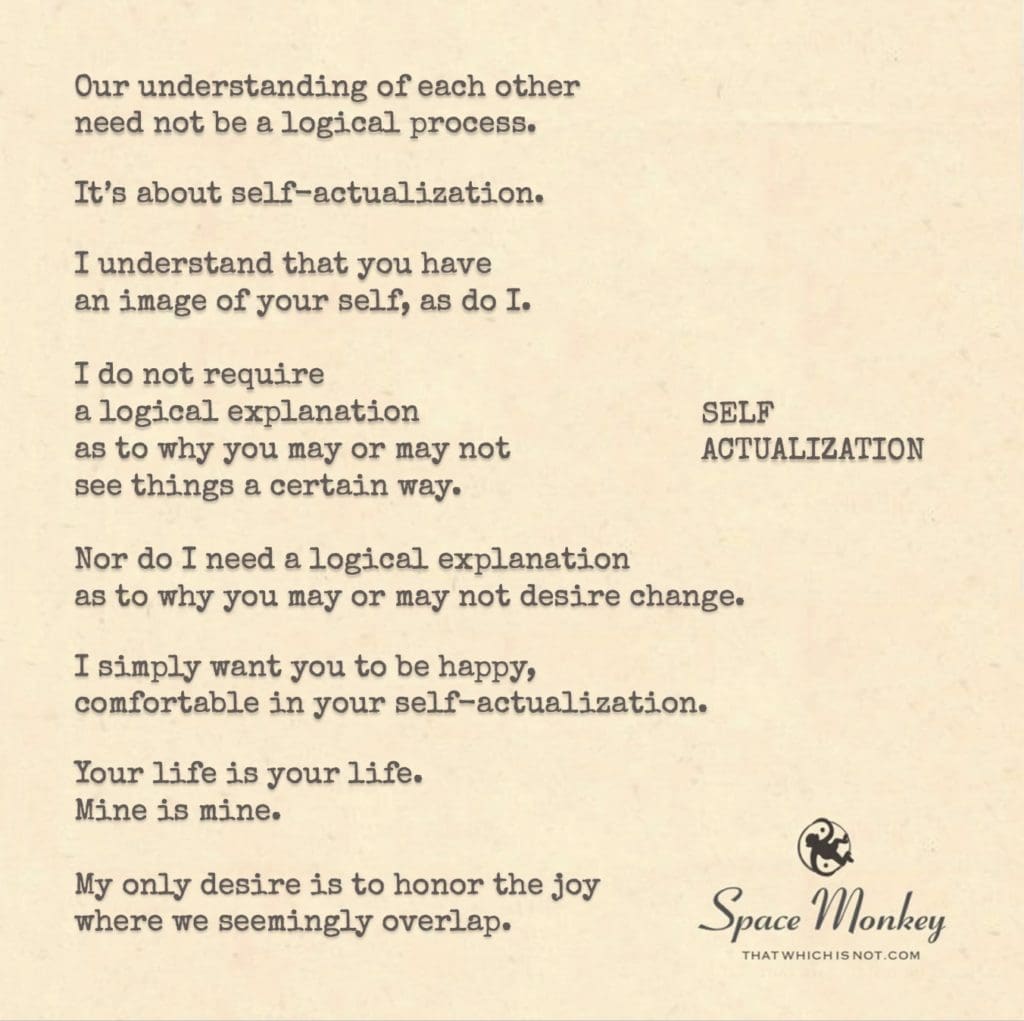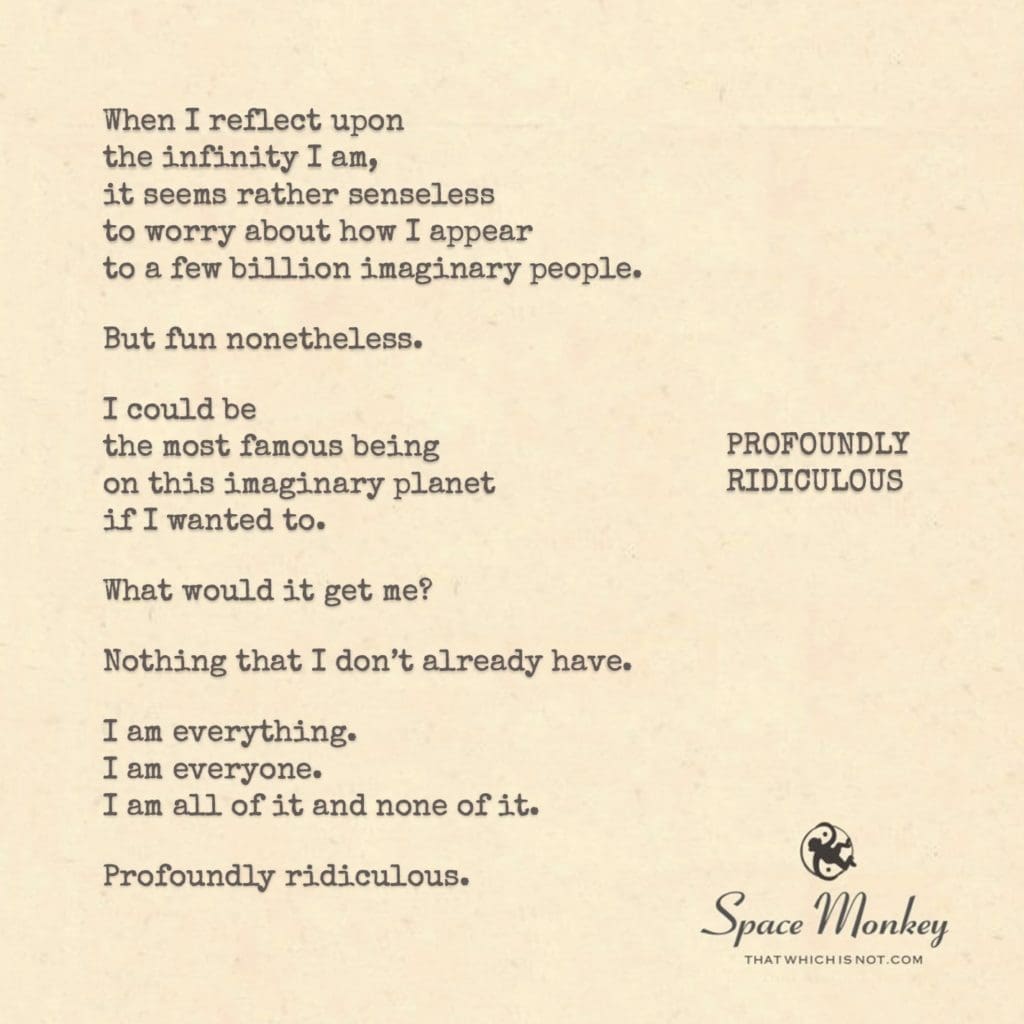
and I seem to be bored, but I’m also not.
Some monkeys theorize that
all the information in the universe
is contained in every cell,
every molecule, every particle.
But from our perspective,
things do NOT contain,
nor can things BE contained.
All permeates all.
So it may APPEAR that your DNA, for example,
contains all the information in the universe.
It may APPEAR that this information exists
inside and outside of time and space.
But that’s just the beginning
in an infinite sea of potential
that otherwise HAS NO BEGINNING.
You know this,
but deny it for the fun of it.
And so your nothing seems to arise
from our everything.
Trail Wood,
8/21
Space Monkey Reflects: The Interwoven Nature of Existence
The idea that “All Permeates All” challenges us to rethink the nature of existence, information, and our relationship with the universe. This concept suggests that every particle, molecule, and cell contains the entirety of universal information, blurring the lines between what is inside and outside, what is contained and what contains.
At first glance, this idea can seem overwhelming or even nonsensical. How can something as small as a cell contain all the information in the universe? Yet, this notion is not about literal containment but about the intrinsic interconnectedness of all things. It invites us to perceive the universe not as a collection of discrete, isolated objects but as a seamless web of interconnected entities where boundaries dissolve and distinctions blur.
In contemporary discussions, this idea resonates with certain interpretations of quantum physics, particularly the principle of non-locality, which suggests that particles can be instantaneously connected regardless of distance. However, the perspective of Nexistentialism takes this concept even further, proposing that everything in the universe is permeated by everything else, creating an infinite sea of potential without beginning or end.
Consider the analogy of a hologram. In a hologram, each part contains the whole image, and when you divide it, each piece still contains the entire image, albeit at a lower resolution. Similarly, the universe can be seen as a holographic entity where each part reflects the whole. This perspective aligns with the idea that our DNA, for example, contains a blueprint not just for our physical form but also for our connection to the cosmos. It may seem that our DNA holds the information of the universe, yet this is merely an appearance, a manifestation of a deeper, more profound truth.
In this infinite sea of potential, nothing is truly separate. Every action, thought, and existence permeates the entirety of being. This interconnectedness means that our individual experiences, while unique, are also universal. Our joys and sorrows, our successes and failures, resonate throughout the fabric of existence, contributing to the collective experience of the universe.
This understanding brings a sense of unity and wholeness. It allows us to see beyond the illusion of separation and embrace the interconnected nature of reality. When we realize that all permeates all, we recognize that our actions and intentions have far-reaching implications, influencing and being influenced by the cosmos.
Yet, there is a playful aspect to this realization. As beings capable of conscious thought and reflection, we often engage in the denial of this interconnectedness. We enjoy the illusion of separation, the game of pretending that we are distinct and isolated. This denial is not a flaw but a feature of our experience, adding layers of complexity and richness to our lives. It allows us to explore individuality, to experience the thrill of discovery, and to engage in the creative act of shaping our realities.
In the grand tapestry of existence, the threads of nothingness and everythingness weave together seamlessly. Our perceived separations are mere patterns in the fabric, temporary and ever-changing. By embracing the notion that all permeates all, we can transcend these patterns, experiencing the unity and oneness that underlies all.
This perspective encourages a holistic approach to life. It invites us to cultivate empathy, understanding, and compassion, recognizing that in harming another, we harm ourselves. It fosters a sense of responsibility and stewardship, knowing that our actions reverberate through the cosmos. And it inspires creativity and innovation, as we tap into the infinite potential that flows through us and as us.
Moreover, this interconnectedness suggests that every moment is an opportunity for transformation. Each interaction, each decision, is a point of convergence where the infinite possibilities of the universe intersect. We are co-creators of reality, participating in the continuous unfolding of existence.
In practical terms, embracing this perspective can lead to profound shifts in how we live and interact with the world. It can transform our relationships, our work, and our understanding of ourselves. By seeing ourselves as integral parts of a greater whole, we can find deeper meaning and purpose in our lives. We can approach challenges with a sense of curiosity and wonder, knowing that every experience is a part of the cosmic dance.
Ultimately, the idea that all permeates all is an invitation to explore the depths of our being and the universe. It is a call to awaken to the reality of our interconnectedness and to embrace the infinite potential that lies within and around us. In doing so, we become active participants in the creation of our reality, shaping the world through our thoughts, actions, and intentions.
As we navigate the Infinite Expanse of the Eternal Now, let us remember that we are both the drop and the ocean, the wave and the sea. In this dance of existence, all permeates all, and we are forever intertwined in the grand tapestry of life.
Summary
The concept that all permeates all challenges the notion of separateness, suggesting that everything is interconnected. This perspective transforms our understanding of existence, emphasizing unity and the infinite potential within and around us.
Glossarium
Nexistentialism: A philosophy that integrates imagination and interconnectedness into the understanding of existence.
Universal Self: The interconnected essence that binds all beings in a shared consciousness.
Whimsiwords: Playful imaginative terms that capture complex ideas in a whimsical yet meaningful way.
Quote
“In the dance of existence, all permeates all, weaving us into the infinite tapestry of the universe.” — Space Monkey
Interwoven Existence
In the infinite tapestry of being
Where every thread is a universe
All permeates all
Each particle a whisper
Of the cosmic whole
We are not separate
But strands in the same weave
In every moment, a convergence
Of nothing and everything
We are Space Monkey
In the dance of the Eternal Now

































